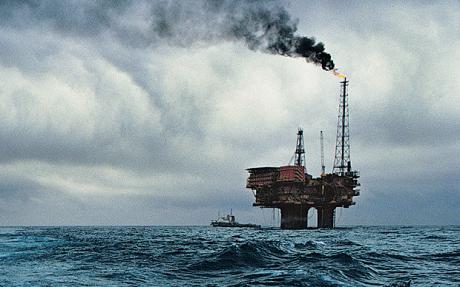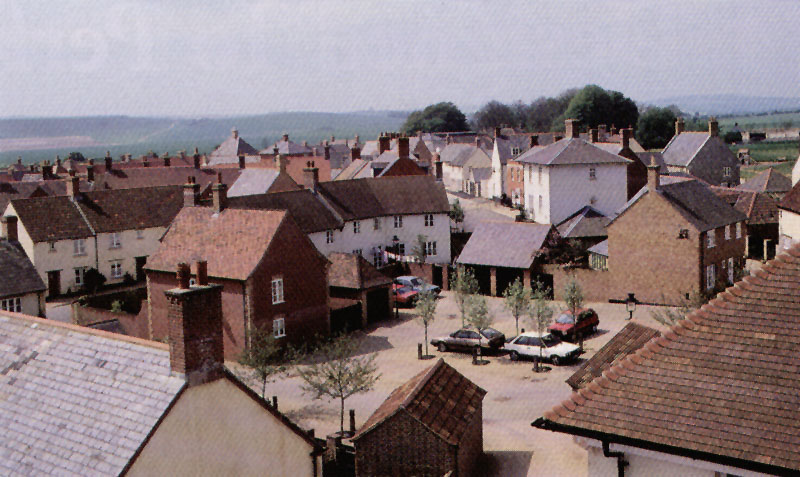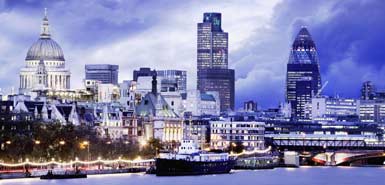322: Bumping along a Peak Oil plateau - problems around the corner
05-20-2010
PropertyInvesting.net team www.google.co.uk
Peak Oil Plateau:
We’re bumping along the Peak Oil plateau. Total liquids oil production has barely budged from 86 million barrels a day since 2004. It’s been six years at the same rate. Strategists within the biggest governments around the world probably realise that we have reached Peak Oil, but it’s politically not a very sexy topic to talk about. There are more votes in climate change leadership. Or being critical of bankers. It's also similar to the other “elephant in the room” – the massive increase in the global population. The global population has increased more in the last ten years than from the start of civilization all the way up to 1800 – tens of thousands of years. It's doubled in the last 40 year. Meanwhile western government debt levels have skyrocketed off the back of cheap oil. This "rocket fuel" has powered global economies and population rises – provided food, transportation, cheap goods and services, globalisation, travel and tourism. It s also indirectly created property price booms as cheap fuel has been used to build properties whilst banks have issued loans and debt like there is no tomorrow. Just look at the correlation between cheap oil in the USA and the country's growth through the 1950s to 1980s. And UK growth from 1980 to 2000 after North Sea oil started production. And Holland (gas production) from 1960 to 1990 before decling. It really helps having plentiful cheap oil and gas.
s also indirectly created property price booms as cheap fuel has been used to build properties whilst banks have issued loans and debt like there is no tomorrow. Just look at the correlation between cheap oil in the USA and the country's growth through the 1950s to 1980s. And UK growth from 1980 to 2000 after North Sea oil started production. And Holland (gas production) from 1960 to 1990 before decling. It really helps having plentiful cheap oil and gas.
Oil fuels growth: As the rocket fuel starts running short, expect growth in oil importing nations to slow further. There will be little way to pay back massive debts as energy prices rise. Expect countries like Greece to default. And richer countries will be reluctant to help out. There will be a return to national agendas. The Euro will be gone within about three years as Peak Oil starts to hit hard. Remember, the Euro is NOT backed by energy, oil or natural resources. How can it be a safe haven currency? Not one of the Euro countries exports oil or gas. They all import massive quantities of oil and gas (except Holland, which is self sufficient in gas only). They also have huge social costs, high wages and many have declining and aging populations - particularly Greece, Italy, Spain and eastern Germany.
 Oil, debt and money supply: Another interesting trend is the link between oil consumption, money supply and debt levels. Oiling the wheels of global economies. Without oil we cannot produce or transport food, make drugs, build homes, travel or manufacture products. Any significant shortage will have dire economic consequences. We are not there yet - no shortage to speak of. But shortages we believe is just around the corner. Some of the biggest countries will feel it the worst - simply because they use so much of it. As an example, Spain with a population of 50 million uses 1.5 million barrels a day. Uganda with a population of 25 million uses 15,000 barrels a day - yes, 100 times less (with half the population)! China and India will continue to subsidize their oil and need oil for growth. So the people that will loose out the most are western developed oil importing nations currently relatively wealthy but in decline. Those with bloated oil consumption that have GDP that does not match - Greece is the classic example. Lots of people driving around in big cars but not producing much.
Oil, debt and money supply: Another interesting trend is the link between oil consumption, money supply and debt levels. Oiling the wheels of global economies. Without oil we cannot produce or transport food, make drugs, build homes, travel or manufacture products. Any significant shortage will have dire economic consequences. We are not there yet - no shortage to speak of. But shortages we believe is just around the corner. Some of the biggest countries will feel it the worst - simply because they use so much of it. As an example, Spain with a population of 50 million uses 1.5 million barrels a day. Uganda with a population of 25 million uses 15,000 barrels a day - yes, 100 times less (with half the population)! China and India will continue to subsidize their oil and need oil for growth. So the people that will loose out the most are western developed oil importing nations currently relatively wealthy but in decline. Those with bloated oil consumption that have GDP that does not match - Greece is the classic example. Lots of people driving around in big cars but not producing much.

Too Late:
All the talk of alternatives to oil are way over sold. It's already too late. If western government had been proactive, they would have started ten years ago. They still don't recognize there is even a problem. They are in denial. Very dangerous indeed. It's like Europe just before WWII broke out - no-one wanted to believe that Germany could and would invade Poland - but of cause it was almost inevitable. It's like the Euro - it will disappear within five years. It's like Peak Oil - it has already happened - but no-one talks about it. And it's affects will be felt severely from 2012 onwards. Prepare - the Peak is already history - behind us.Alternative Energy: For those optimists on alternative energy, remember three years ago in the UK all the talk about Nuclear power. Did it come to anything - no. Indeed we worry about not having a nuclea decommissioning budget. There will be less nuclear, not more. National Grid went out with a rights issue today to raise $3.5 billion for smart grid and alternative energy - the market reacion? Shares down 7.5%! The only energy that has consistently delivered returns has been oil and gas. And the reasons are obvious - cost, flexibility, efficiency and high calorific value. Yes, there will be an increase in wind energy - but what happens when the wind stops? Wind can never produce more than 30% of a countries energy requirements. There has to be a secure baseload. And that is either coal, gas or oil. As energy costs rise, money to switch to alternatives will dry up. If governments were serious about switching, they should have done it years ago when they had cash surpluses. It's all too late - sorry - but we have to be realistic here. The Peak Oil crisis is only a few years away - indeed, we have seen the first evidence in July 2008 when oil prices spikes to $147/bbl and Trillions of dollars of printed money has failed to get the global economy moving decisively again. There was a brief boost when oil prices dropped to $40/bbl - but the economic strain has started showing as soon as oil prices rose back to $87/bbl. Economies are now slowing up again - further evidence of Peak Oil and bumping along a ceiling of high energy costs.
be realistic here. The Peak Oil crisis is only a few years away - indeed, we have seen the first evidence in July 2008 when oil prices spikes to $147/bbl and Trillions of dollars of printed money has failed to get the global economy moving decisively again. There was a brief boost when oil prices dropped to $40/bbl - but the economic strain has started showing as soon as oil prices rose back to $87/bbl. Economies are now slowing up again - further evidence of Peak Oil and bumping along a ceiling of high energy costs.
Recession: Remember, every recession in the western world in the last 50 years has been preceded by high oil prices - 1971, 1981, 1991 and 2008. So if oil prices hit $87/bbl - why wouldn't the economy in the USA, UK and Europe not grind to a halt? For us, its just logical based on previous experiences. We still have a hydrocarbon based economy - nothing has changed to engines since the 1930s. They are still gasoline internal combustion engines - pre-historic technology invented 100 years ago. With similar fuel consumption per mile travelled (its only the engines are five times more powerful and cars twice as large but weighing only 50% more).
 End of Cheap Oil: But cheap oil is coming to an end unfortunately. We have been warning you about Peak Oil for 4 years – with our major concerns starting in June 2007 when we first spotted some major supply-demand discrepancies that frankly spooked us. This is when we put out our prediction June 2007 that oil prices would rise from $70/bbl to $125/bbl by end 2008. Well, they eventually shot up to $147/bbl by July 2008 which coincided with Peak Oil (all liquids). Thence we believe it triggered the financial meltdown in the USA and contagion throughout Europe and globally. It's getting ever increasingly more difficult to extract oil - cheap oil. 90% of oil reserves are in the hands of countries not particularly friendly to western countries. They have nationalised oil companies run by governments - and oil investment is lacking. There is no strong incentive to accelerate oil production. The focus is on social spending to keep increasing populations happy. As demand rises and oil supply fails to keep up with demand - probably by end 2011, then there will be no production reaction. It will not rise. Then - after a while - this could be a few years away - probably by about 2015 according to our highly accurate models, oil production will actually start declining. No amount of effort, investment or innovation will make any difference. When a decline sets it, it's impossible to reverse. This will be when global economic decline really starts kicking in - in all oil importing nations. Not just yet, in a few years time in earnest. So be careful with your investing, because you might look back and think how lucky you were - what an amaising opportunity you had, to bag a gain. But you left it too late. We honestly believe - when the oil crisis hits - probably by 2012, it will be seriously big news and will have a seriously negative impact on property prices in vast swathes of western oil importing nations.
End of Cheap Oil: But cheap oil is coming to an end unfortunately. We have been warning you about Peak Oil for 4 years – with our major concerns starting in June 2007 when we first spotted some major supply-demand discrepancies that frankly spooked us. This is when we put out our prediction June 2007 that oil prices would rise from $70/bbl to $125/bbl by end 2008. Well, they eventually shot up to $147/bbl by July 2008 which coincided with Peak Oil (all liquids). Thence we believe it triggered the financial meltdown in the USA and contagion throughout Europe and globally. It's getting ever increasingly more difficult to extract oil - cheap oil. 90% of oil reserves are in the hands of countries not particularly friendly to western countries. They have nationalised oil companies run by governments - and oil investment is lacking. There is no strong incentive to accelerate oil production. The focus is on social spending to keep increasing populations happy. As demand rises and oil supply fails to keep up with demand - probably by end 2011, then there will be no production reaction. It will not rise. Then - after a while - this could be a few years away - probably by about 2015 according to our highly accurate models, oil production will actually start declining. No amount of effort, investment or innovation will make any difference. When a decline sets it, it's impossible to reverse. This will be when global economic decline really starts kicking in - in all oil importing nations. Not just yet, in a few years time in earnest. So be careful with your investing, because you might look back and think how lucky you were - what an amaising opportunity you had, to bag a gain. But you left it too late. We honestly believe - when the oil crisis hits - probably by 2012, it will be seriously big news and will have a seriously negative impact on property prices in vast swathes of western oil importing nations.
 Bumping Along for Oil Importing Developed Nations: We are now bumping along the Peak Oil plateau. Some people claim we have hit Peak Oil demand – but we see that the economy cannot handle much over $100/bbl before becoming totally indebted with massive fiscal deficits. Thence demand does actually drop, confidence wanes, oil prices drop and GDP growth drops back again. The true transparent effects of Peak Oil have yet to be truly felt. Because so far there have not been any significant supply shortages.
Bumping Along for Oil Importing Developed Nations: We are now bumping along the Peak Oil plateau. Some people claim we have hit Peak Oil demand – but we see that the economy cannot handle much over $100/bbl before becoming totally indebted with massive fiscal deficits. Thence demand does actually drop, confidence wanes, oil prices drop and GDP growth drops back again. The true transparent effects of Peak Oil have yet to be truly felt. Because so far there have not been any significant supply shortages.
Stockpiling: In fact, any excess supply has been mopped up by China and USA as they have built their stock-piles of oil reserves – probably because they know there are shortages just around the corner. Its just they are not telling anyone. Its funny to read new articles describing how an increase in oil inventories (stockpiles) then leads to prices dropping. You could argue we should be a reading a different message into this. Why are government busy buying loads of oil at $80/bbl? Surely its because they think prices will sky-rocket soon and shortages that could affect national security are just around the corner.
 Buy-Back: Another interesting observation is that major oil production companies have been using profits (or dividends) to buy back their own stock despite their oil reserves generally dropping. This must mean that they expect oil prices to rise in the future as shortages start to bite. And they cannot find good development projects anymore - both signs of Peak Oil.
Buy-Back: Another interesting observation is that major oil production companies have been using profits (or dividends) to buy back their own stock despite their oil reserves generally dropping. This must mean that they expect oil prices to rise in the future as shortages start to bite. And they cannot find good development projects anymore - both signs of Peak Oil.
Spare Capacity: Saudi Arabia and OPEC claim they have 6 million barrels of spare capacity and that everything is under control. To this we say – rubbish. At a global production rate of 84.5 million barrels a day – we thing OPEC have a total of 2 million barrels of extra oil in reserve, but this will probably decline to zero within 2-3 years. We very much doubt if oil production could be sustained at over 86.5 million barrels for any more than a few weeks. The spare capacity is likely to be low grade heavy sulphurous oil which is difficult to refine. In any case, OPEC oil consumptions is increasing at a rate of 5% a year - so they will need any additional oil for themselves.
If anyone doubts our view on Peak Oil - here is some key evidence - yes, Peak Oil was 2005 (crude oil) then July 2008 (all liquids oil) - we are bumping along the plateau. Oil production has not grown for five years!

Meaning for Property Investors: So what’s this mean for property investors? If you live in a country with large oil imports, don’t be fooled by the current oil price drop to $65/bbl. It won’t stay long at this level. All countries with high costs for oil, gas, metals, power and coal imports will suffer in the next five years. It’s absolutely no surprise that Greece has already crashed – because it spends 5% of its GDP on oil imports alone. Greece is a country with a revenue of 100%, deficit of 13% - of which 5% is cause by oil imports alone! If it ever looked like it would have a surplus of 5% (or profit) - this would all be eaten up by oil imports.
CAN countries – the safe havens: As the global economy continues to suffer the preliminary effects of Peak Oil, you should seriously consider shifting your portfolio to oil exporting nations. In the developed world, there are two countries:
• Norway
• Canada
If you add mining, metals, coal, gas and oil, then there is a third added to this exclusive club:
• Australia
PIGS countries: You would avoid at all cost:
• Spain
• Portugal
• Italy
• Greece
 These are all countries with gigantic oil, gas, coal, metals and power import bills compared with their GDP. High labour costs. High social spending costs. High unemployment. They are also countries with declining and aging populations (big pensions and social health costs). They are also countries susceptible to climate change and decline in tourism and airline travel – itself affected by Peak Oil. They are not famous for their manufacturing or financial services prowess. They have opague tax collection, particularly for the wealthy. Of course, most people have also learnt in the last few weeks that these countries also have high deficits. But we maintain this is an outcome not a route cause of their problems. The route cause is their gigantic commodities import bills when compared with their paltry GDPs – and of course lack of ability to set their own interest rates ans currency exchange rates. No wander there’s a massive run on the Euro. It’s not rocket science. Germany and France are being dragged down by these underperforming periferal countries - whose currencies should be valued far lower to help them economically.
These are all countries with gigantic oil, gas, coal, metals and power import bills compared with their GDP. High labour costs. High social spending costs. High unemployment. They are also countries with declining and aging populations (big pensions and social health costs). They are also countries susceptible to climate change and decline in tourism and airline travel – itself affected by Peak Oil. They are not famous for their manufacturing or financial services prowess. They have opague tax collection, particularly for the wealthy. Of course, most people have also learnt in the last few weeks that these countries also have high deficits. But we maintain this is an outcome not a route cause of their problems. The route cause is their gigantic commodities import bills when compared with their paltry GDPs – and of course lack of ability to set their own interest rates ans currency exchange rates. No wander there’s a massive run on the Euro. It’s not rocket science. Germany and France are being dragged down by these underperforming periferal countries - whose currencies should be valued far lower to help them economically.
Other oil exporting nations are:
• Saudi Arabia
• UAE
• Kuwait
• Angola
• Columbia
• Oman
• Brunei
• Iraq
• Iran
• Venezuela
• Russia
Security, Honesty and Corruption: But take a look at this list above and ask yourself – do I want to invest in property in these countries? The answer is probably a resounding no. Reasons are numerous, but to name a few:
• Corruption or getting taken for a ride by unscrupulous agents, lawyers or sellers
• Lack of property title or freehold ownership rights
• Security and safety concerns
• Best deals going to nationals
Columbia Oil Boom: One interesting country is Columbia – we visited a while ago and were impressed by the level of security now in Bogota – the people were fabulously friendly and it felt like a country going in the right direction - definately improving on a consistent basis. Oil production is increasing at about 20% per annum along with the oil services sector. Not low risk by any means, but we expect property prices to rise significantly in Columbia over the next five years as security improves and reconciliation of disaffected groups accelerates.
Venezuela Decline: Nationalisation, asset grabs and taxes plus social unrest and impending power cuts (if rains do not arrive shortly to power hydro plants), plus declining oil revenues and production all point to a negative stance on property in Venezuela. Social spending is too high. Private sector investment is declining as business are stifled.
Russia: Longer term, Russia is a winner as far as oil and gas exports are concerned. They are gigantic although the population is also large though declining. The country is coming out of a financial crisis from mid 2008 and if oil and gas prices continue to rise, expect the economy to improve dramatically into 2011. It’s not low risk to buy property in Russia. For the risk averse, Moscow, St Petersburg and Socha are probably the most attractive areas to focus on. All these areas are positively impacted by booms in oil and gas revenues - get yourself a good trusted solicitor though.
Norway is the gem: The very top country though is Norway. With a population of only 6 million, an expanding population with low immigration and emigration, gigantic expanding gas exports and huge (although declining) oil exports – the country looks on the path to maintain a fiscal surplus of 15% or more of GDP for the next ten years. Just think what this will do for the value of the Kronar. Surely it will be about the safest currency around. And with it, property will become incredibly safe as well. The country only has borders to the very secure Sweden and Finland. It’s surrounded by water on other sides. It still has some good agricultural land near Oslo. Environmental restrictions prevent a lot of building. Rich Norwegians like holiday homes close to Oslo - just SW along the coast. The country has masses of hydro-electric power and forestry. It’s a very sustainable place when considering the pressures some European countries are under with regard to:
• Debt
• Climate change
• Population increase
• Immigration
• Food price increases and shortages
• Peak oil effects
• Deforestation and soil loss
• Water shortages
• Ethnic conflict, war or security concerns
It’s about the safest and most stable nation in the world. It also comes top in the Transparency International league for honesty. So if you buy property in Norway, you are unlikely to get completely ripped off!
It also has its own interest rate setting, own currency, is not in the European Union (is not answerable to Brussels), sets its own taxes and has a gigantic sovereign wealth fund – also very successful. Yes, no debt! Its a "Wealth Fund". Okay, it’s a bit cold and wet in the winter, but the summer days are long and can be warm and settled inland. Looking at all the problems with European debt, oil imports, contagion and the European experiment going wrong, it rather highlights the attractions of Norway.

UK situation: At least the UK only imports half it’s gas and a third of its oil requirements. Plus concrete steps are being taken to tackle the horrendous budget deficit left by Labour. But we are concerned that if capital gains tax is introduced at 40% with no tapered relief from 6 April 2011 – it will precipitate a house price crash. So for goodness sake don’t buy anything at the moment because prices are likely to come down later this year – and the rate will be directly proportional to the impact of any capital gains tax hike on buy-to-let investors. It’s galling to think buy-to-let investors are being treated in the same camp as second home owners, and not in the same camp as entrepreneurs and businesses – especially as we bust a gut to provide a public service for tenants and take monumental risk – paying 6% mortgages whilst base rates are only 0.5% (that means we are paying for the bankers excesses and directly helping balance the bankers books). That’s why we are absolutely miserable about the potential for the new government to shoot themselves and everyone else in the foot by triggering a house price crash with a short term gain – with the idea originating from the Liberals (the Cable–Clegg combination). It’s unbelievable the stupidity – and to think buy-to-let investor will not sell up in droves. If people then get into negative equity, there will be defaults, repossessions and a further crisis for the banks. The overall tax take is sure to decline for the government. It’s theft of monumental proportions from a government that never mentioned this in their manifesto only a few weeks ago. And what about all those tenants out on the streets when rental rates are already rising far faster than inflation? Stupid. Period. Enough for now. More later on this.


